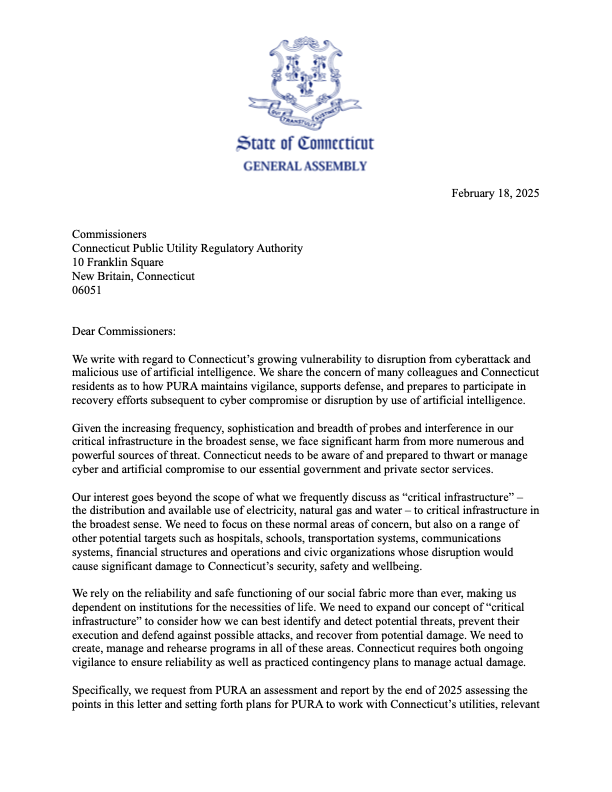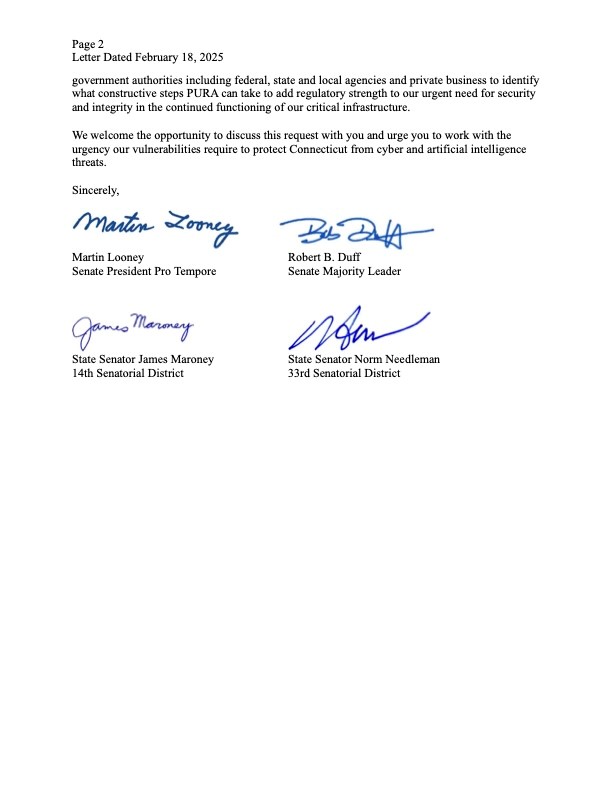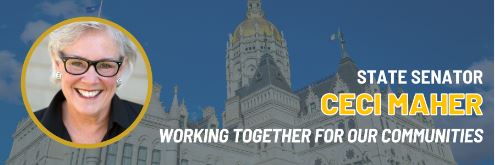Senator Duff Advocates for Law Enforcement Training to Improve Interactions with Individuals with Disabilities
Senate Majority Leader Bob Duff (D-Norwalk) voiced strong support for House Bill 7202, An Act Concerning Law Enforcement Training, emphasizing the need for comprehensive police training on interacting with individuals with mental or physical disabilities, including autism spectrum disorder (ASD). Senator Duff submitted testimony to the Public Safety and Security Committee urging the passage of the bill, particularly its provision requiring enhanced officer training.
Citing a 2021 study published in the Journal of Autism and Developmental Disorders, Senator Duff highlighted the alarming statistic that individuals with developmental disabilities, such as ASD, are seven times more likely to encounter law enforcement than those without disabilities. He pointed to multiple incidents nationwide where a lack of understanding led to unnecessary use of force, injuries, and tragic outcomes.
“Ensuring that police officers receive proper training on autism and other disabilities is not just a policy improvement—it is a necessity for public safety,” said Senator Duff. “Too often, misunderstandings escalate into harmful encounters that could have been prevented with the right knowledge and de-escalation techniques.”
“Autism training for law enforcement is crucial because when individuals with autism interact with law enforcement, they are at a higher risk of misinterpretation and escalation during these encounters, potentially leading to negative outcomes,” said Norwalk Chief of Police James Walsh. “Training can help officers recognize autism behaviors, de-escalate situations, and foster safer, more positive interactions. Overall, law enforcement officers felt they were better prepared and more knowledgeable about the autistic community and believed that the strategies they were taught were applicable in the field to provide better services.”
“In this day and age when we are asking so much of our First Responders when responding to emergencies and crises, it is in everyone’s best interest (particularly theirs) to have been provided with the tools that they will need to use their skills when interacting with persons with mental or physical disabilities or special needs (including those with autism),” said M. Jeffry Spahr of Families for Autism Acceptance, Inclusion and Recognition (FAAIR). “This Bill is designed to develop training curriculum that will assist them in delivering informed responses, procedures and techniques to a variety of situations involving persons who may need a specialized response. The need for this training has been recognized by the International Association of Chiefs of Police, the National Institutes of Health (NIH) and other States. By making this training available and requiring its instruction, a huge benefit is being delivered to both our Law Enforcement personnel as well as our special needs community.”
The proposed training would equip officers with the tools to recognize behaviors such as stimming, sensory overload, and communication difficulties—common characteristics of ASD. The goal is to reduce misinterpretations of these behaviors as threats and to ensure safe and effective interactions between law enforcement and individuals with disabilities.
“This legislation is about keeping both officers and community members safe,” Senator Duff added. “By passing HB 7202, we can foster more informed and compassionate policing, ensuring that those with disabilities receive the understanding and respect they deserve.”
Senator Duff urged the Public Safety and Security Committee to move forward with the bill, reinforcing his commitment to inclusive policies that promote safety, fairness, and dignity for all Connecticut residents.
Senator Duff’s full testimony can be found here and more information about the bill can be found here.
Contact: Kevin Coughlin | Kevin.Coughlin@cga.ct.gov | 203-710-0193









